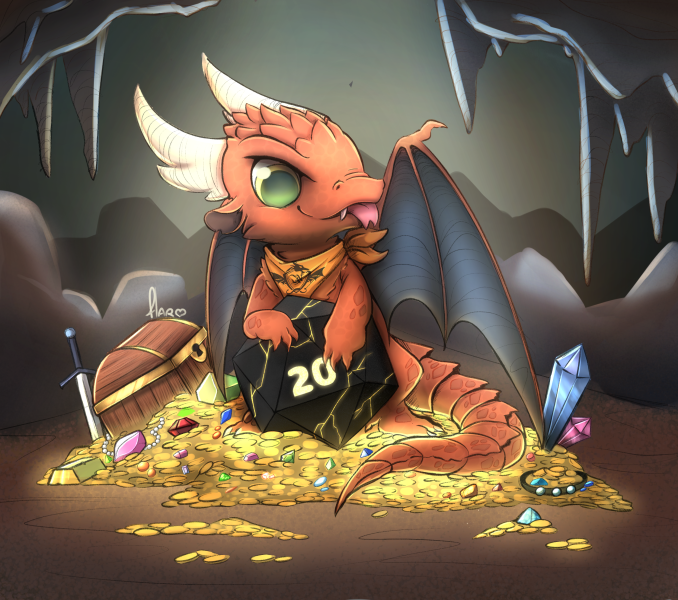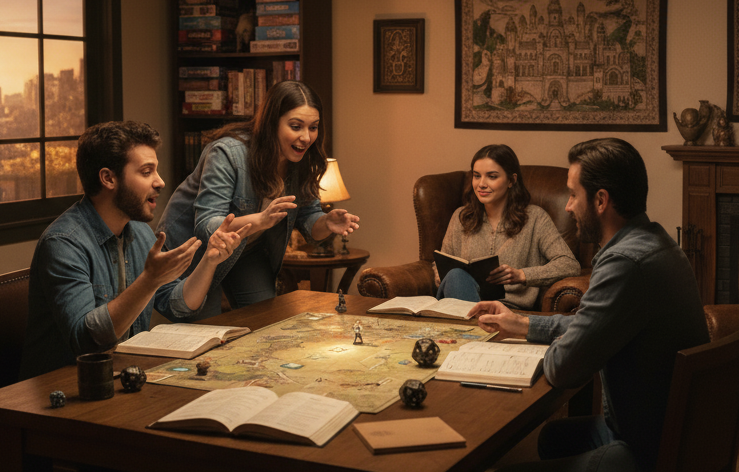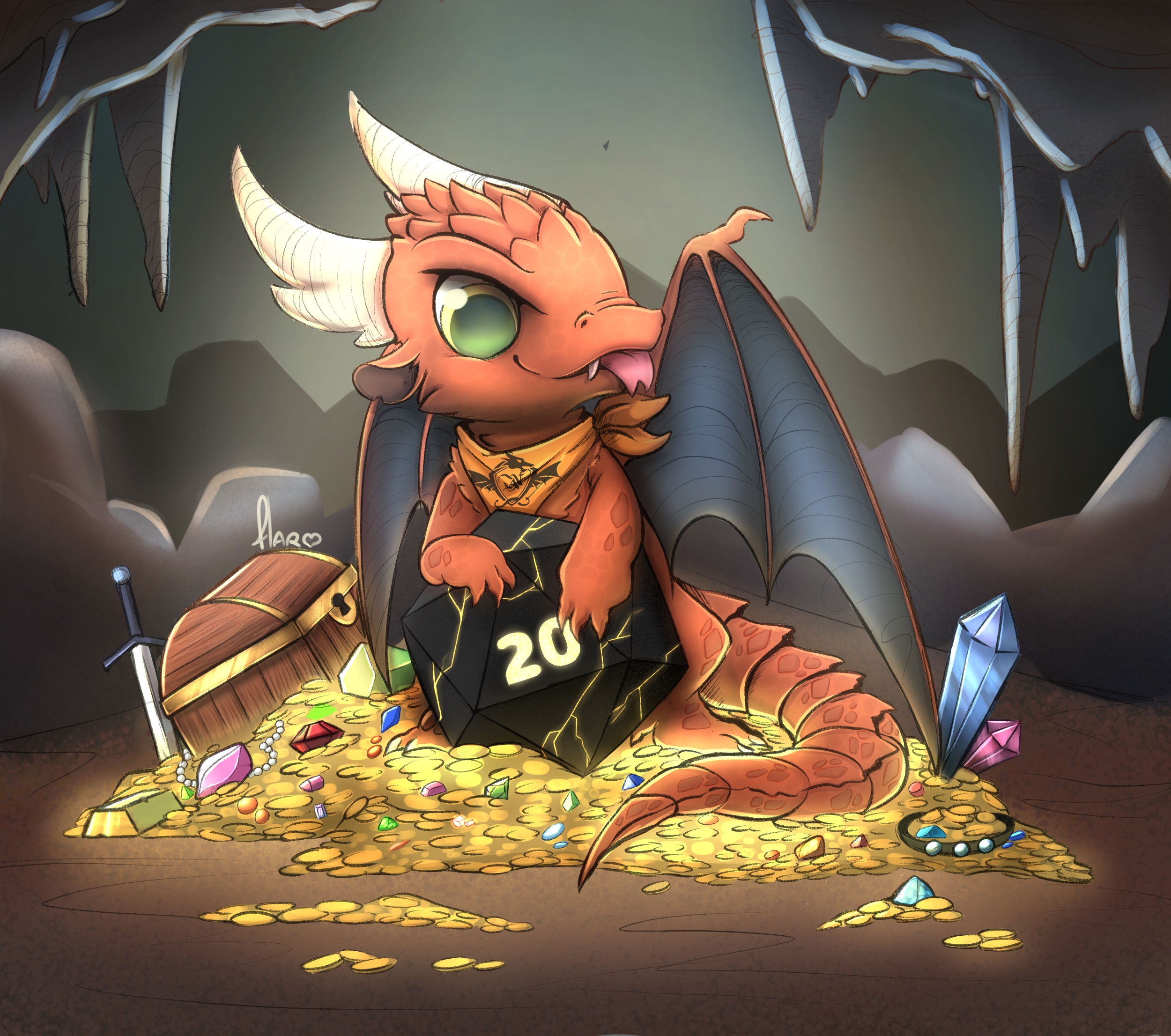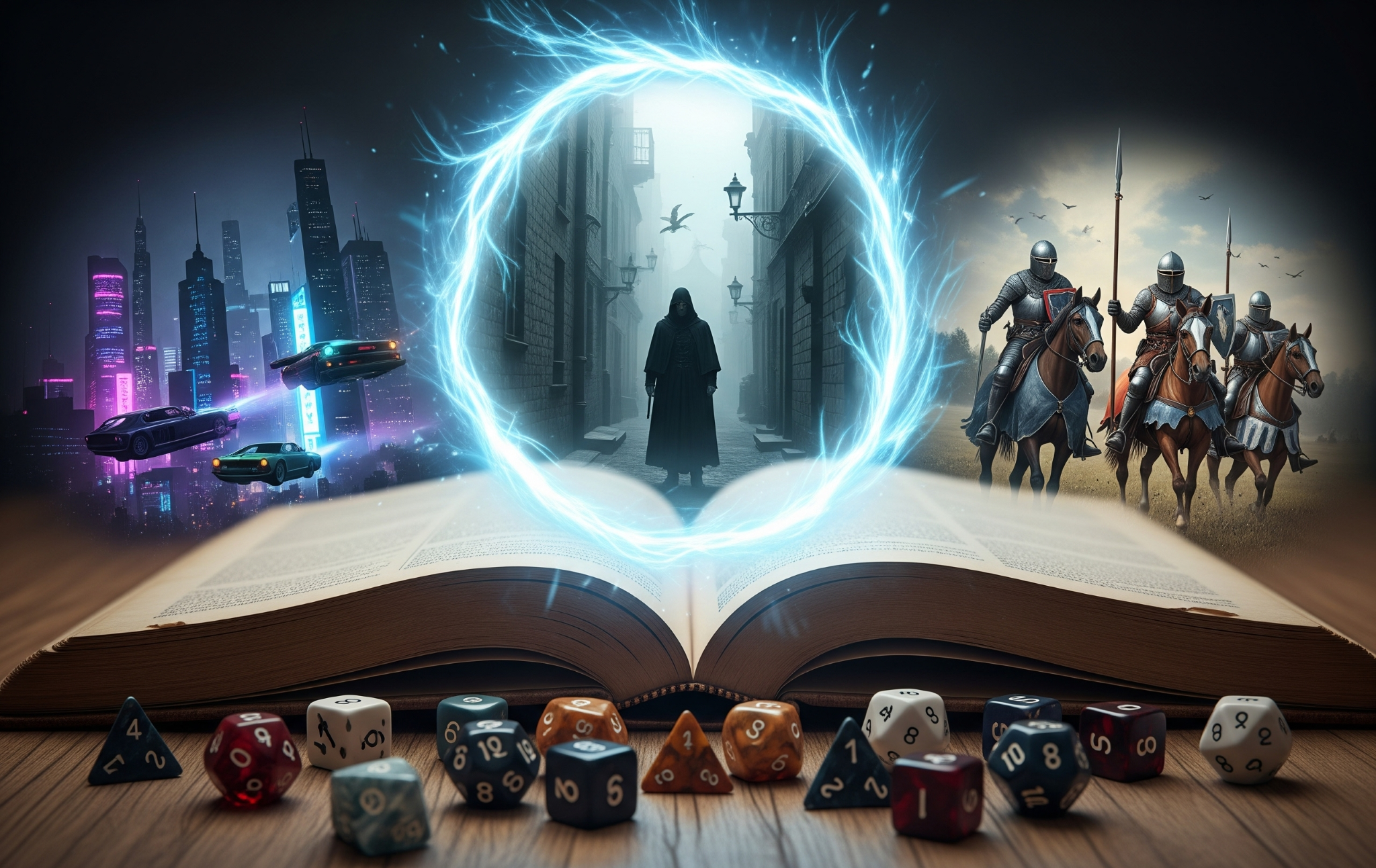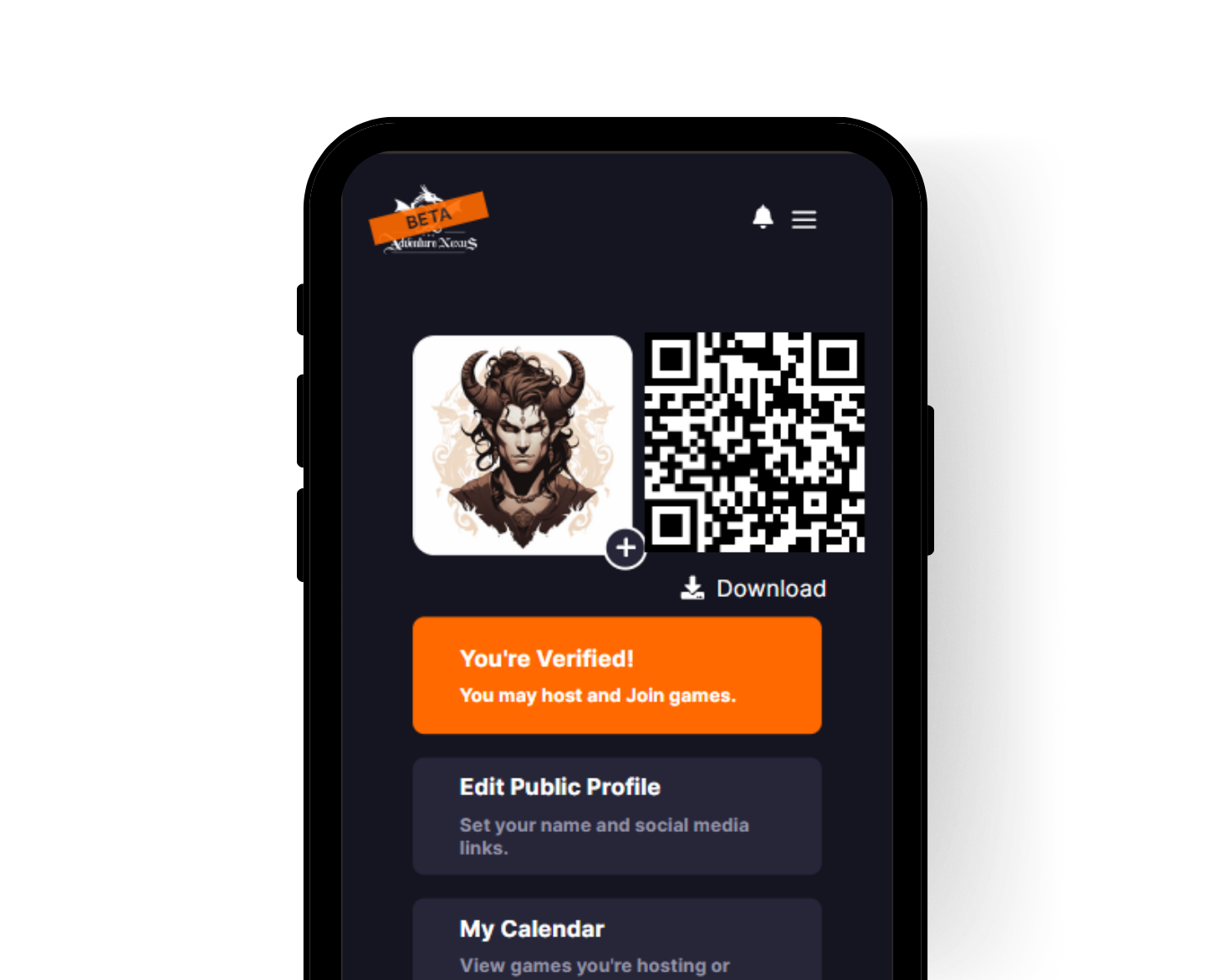In the world of tabletop role-playing games (TTRPGs), there’s a common misconception that every player must be a bold, theatrical orator, ready to seize the narrative spotlight at a moment’s notice. The truth is, many of the most valuable members of any table are what I call “Observers”—the players who genuinely prefer to watch the action unfold, listen intently to dialogue, and only speak up when their character’s unique expertise is absolutely required. They are the audience members, the note-takers, and often the moral compass of the party.
As a Game Master (GM), you might worry that an Observer isn't engaged, or worse, isn't having fun. You might instinctively try to "fix" the problem by constantly turning to them and asking, "What does Torvin do?" or "How do you feel about that, Elara?" While well-intentioned, this method can backfire spectacularly.
This was a bad habit for me that I admit, I had to learn to overcome. Improv skills and actively trying to consider the scene from the Observer’s perspective will help train your brain and your tongue to follow the mental vision in your head. It is honestly a trick and skill I learned from a background in sales. Once I learned to apply it to GMing, things got a lot easier. Let your mouth follow your eyes. In this case, it is the mental picture in your mind. Always be thinking/envisioning in your mind and practice describing with a 10 second delay in the narration, which gives you a natural buffer of time to think and respond with something engaging without putting that player in a forced spotlight.
Forcing the spotlight onto a player who thrives in the shadows can feel like a performance review, creating anxiety and making them feel pressured to be someone they are not. The goal isn't to turn the Observer into the Star; it's to create meaningful, low-pressure points of engagement that validate their playstyle or the character’s expressed demeanor.
The key to engaging the Silent Player lies in understanding why they are silent. It's often not shyness; it's a preference for a different kind of immersion. They might be deeply invested in the setting, the lore, and the interpersonal drama, but they express that investment through critical thinking, strategic planning, or quiet, detail-oriented observation.
Another helpful strategy that I will contend is more applicable to Campaigns rather than One Shots, as you have a better opportunity to dig into both the player and character mind set with a Session 0. In Session 0s I recommend generating a custom set of questions designed to reveal the mind of the player and character. It will not only give you insight into both, but it will also give you plenty of plot juice to draw from, as well as increase player investment as well as engagement. (See my previous blog post for my sample questions)
So, how do you make the game feel like it was designed just as much for the Observer as for the Bard who won't stop singing or talking over people (especially in those moments the Observer does try to add input?). The strategies below focus on shifting the focus from active roleplay to passive activation—giving the Observer character-specific things to notice, discover, and contribute, often before a single die is rolled or word of dialogue is exchanged.
The challenge is to make their silence a narrative tool. When you pause and look around the table, the extroverted players see an opportunity for dialogue. The Observer should see an opportunity for a unique piece of information. By tailoring these engagement points to their specific character build or backstory, you transform their reserved nature into a source of valuable in-game knowledge, subtly reminding the entire table that the Observer is not just present, but absolutely essential.
Practical Strategies for Passive Activation
1. The "You Would Notice" Cue (Sense & Skill Activation)
Instead of asking the Observer what they do, tell them what they notice, based on their highest skills.
- Example: Don’t ask: "Do you look for traps, Rogue?" Instead, say: "Rogue, because your character has lived in the city's underbelly for years, you would notice the faint, metallic scent of ozone in the air—a smell often associated with black-market arcane traps."
- The Practice: This instantly grants the player an important narrative beat without requiring them to initiate a search or speak a line of dialogue. It validates their character's mechanical strengths and makes their high skill scores feel like passive, always-on benefits.
- Using Custom Skills: I also use Custom Skills that make sense for the setting to use as a further passive activation strategy. For example, Local Knowledge, makes sense for any character that may have lived in an area for any length of time, and can be a great boon to you and the party both to deliver on passive observations related to their environment, that you can tie into plot devices or as triggers for certain reactions. You can even use them as tools of deception at times, just to keep them on their toes. Notice something about a trap, or a social situation that is perhaps designed to deceive by a Big Bad that knows they are being Observed for example.
2. The Lore Connection (Backstory & Worldbuilding Integration)
Tie plot points directly to the Observer's backstory, ensuring they have privileged information no one else has.
- Example: When the party enters an ancient temple, turn to the Player with the Academic background: "Scholar, you recognize the specific, minute carving style on this wall. You spent a semester studying the lost dialect of the Sunken Coast, and you know this symbol represents not a god, but a warning to the priesthood of a specific, imminent betrayal."
- The Practice: This makes the Observer the irreplaceable "lore dump" of the group. The other players are forced to look to them for guidance, creating a natural and non-confrontational moment of leadership.
3. In-Character Non-Verbal Prompts (Spotlight-Sharing)
Use physical prompts and gestures that require only a nod, a shake of the head, or a single word, rather than a monologue.
- Example: When an NPC lies, describe the NPC's mannerisms, then look directly at the Observer's character, the one with the high Insight/Perception: "The merchant finishes his story and glances slightly to the left, running his thumb over his ring. Ranger, you’ve spent enough time around liars and grifters—does his body language check out?"
- The Practice: This is a soft inquiry. It offers a quick, meaningful chance to use a skill, and a simple "No, he's lying" is a complete and satisfying answer that advances the story.
- Using Inattention: Sometimes you can use a player's inattention, to ironically bring them back. The whole party is engaged with what is happening in a scene, let the player who’s attention is wandering be the one to notice the anomaly. Give them advantage on key perception roll, (just don’t ever Rely on a success to be a plot driver, as this will often backfire on you and cause you to stumble).
4. The Pre-Session Setup (Investment Outside the Game)
Give the Observer a small, simple task to prepare between sessions that the party will rely on later.
- Example: Before a session involving a new organization, message the Observer: "Warrior, your brother was part of the Iron Company. Research three ranks or insignias they would have and write a brief description of what they represent."
- The Practice: This utilizes the Observer’s preference for research and preparation. It transforms them into an expert on a specific facet of the world, providing a moment of quiet pride and utility at the table.
- Asking for Player Investment: This is actually a unique way of giving them a catalyst of engagement, without them feeling pressured In-game to come up with information or responses to material they may be unprepared to deliver (which can lead to anxiety and stage fright, rather than engagement). It is a veiled way of Asking for Player Investment or Engagement. Another tool and truth I learned from sales. “You don’t get, if you don’t ask…”
5. The Delayed Reaction (The Power of Silence)
When a major event occurs (a trap is sprung, a revelation is made), briefly ignore the active players and describe how the chaos affects the Observer's character.
- Example: A flash of light fills the room. Instead of asking for a save from the Barbarian, say: "Rogue, you were leaning on the ancient stone pillar. The flash momentarily blinds you, but when your vision clears, you notice a fresh crack running down the stone, revealing a hollow space inside."
- The Practice: By dedicating descriptive text to their experience, you affirm their presence and highlight the environmental impact on them. This often leads them to initiate action naturally, without being asked.
- Finding their Wheelhouse: By utilizing the Session 0 and 20 Questions tools, it will be easier to find out What interests them, and can thereby cater to their hot button triggers. This can be a player or character observation that pays off. This is particularly handy with players who may be afflicted with ADHD or Autism, (Speaking from the experience of having both). Doing this tends to be a methodology to get them to open up about the subject. ( It can be a backstory element they are proud of, a skill or interest of theirs, again character or player.)
Ultimately, the 'Observer' player isn't a problem to be fixed; they are an asset to be activated. By moving away from high-pressure "What do you do?" prompts and embracing these passive engagement strategies, you accomplish something far more powerful than forcing a performance. You validate their playstyle. You transform their silence from a perceived liability into a potent narrative tool. When you use their skills, lore, and unique perspective to feed them exclusive information, you're not just 'including' them—you're making them indispensable. A great GM doesn't need to make every player the star; they just need to create moments that make every player feel essential.
